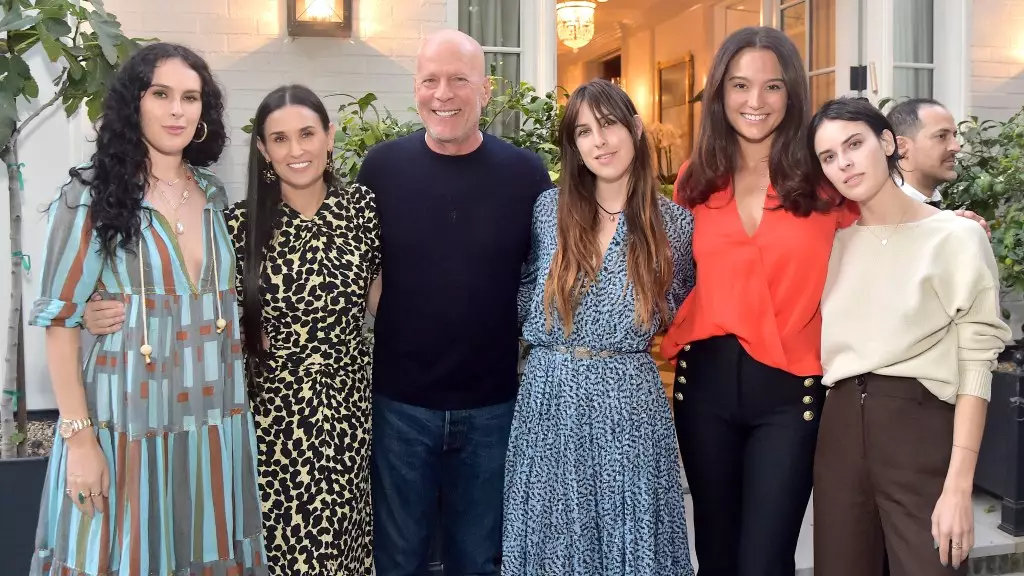In a recent interview, actress Demi Moore shed light on the health journey of her ex-husband, Bruce Willis. During her appearance on “The Drew Barrymore Show” on September 13, Moore conveyed a sense of hope and acceptance, declaring that Willis is “in a stable place.” These words resonate deeply in a landscape where mental health and the complexities of aging are often met with silence and stigma. The conversation served as a reminder of the different ways individuals navigate their loved ones’ health challenges, particularly in the realm of neurocognitive diseases.
Moore’s reflections reveal a profound understanding of the relationship they share beyond marriage. Expressing the importance of meeting people “where they’re at,” she emphasized a principle of acceptance that goes beyond nostalgia for the past. This sentiment is vital—not only in her role as a former spouse but also as a mother to their three daughters, Rumer, Scout, and Tallulah. The philosophy she mentioned highlights a mature acknowledgment of human relationships, especially in the face of daunting realities. She treasures every moment spent with Willis, underlining the notion of finding joy amidst adversity.
The gravity of Willis’ health situation became more pronounced when the family disclosed that the 69-year-old actor had been diagnosed with frontotemporal dementia after initially being diagnosed with aphasia. This development underscores the variability and unpredictability inherent to such conditions, marking not only a personal journey for Willis and his family but also shedding light on a broader phenomenon affecting countless families around the world. Frontotemporal dementia, as noted in family statements, possesses an especially cruel twist: it affects communication, one of the most fundamental aspects of human connection.
In light of the challenges Willis faces, his wife, Emma Heming Willis, addressed the media’s tendency to sensationalize health issues and propagate misleading narratives. Her passionate plea to journalists reflects a growing frustration with the way public figures’ health struggles are often misrepresented and dramatized. This is more than just a personal lament; it speaks to broader societal themes regarding empathy and responsible journalism.
Adding to the conversation, Tallulah Willis expressed her own insights, portraying her father not as a figure diminished by his diagnosis but as a man still imbued with love and connection. Her presence on the same talk show indicates a family dynamic rooted in support and understanding, encapsulating feelings that are relatable to anyone experiencing loss or change due to health issues. The family’s open dialogue fosters a sense of community for others grappling with similar situations.
As Demi Moore’s revelations remind us, the journey through illness is not just one of loss but equally one of resilience, love, and a redefined understanding of relationships. In their shared experience, there remains a glimmer of beauty—even in moments marked by uncertainty.

Leave a Reply